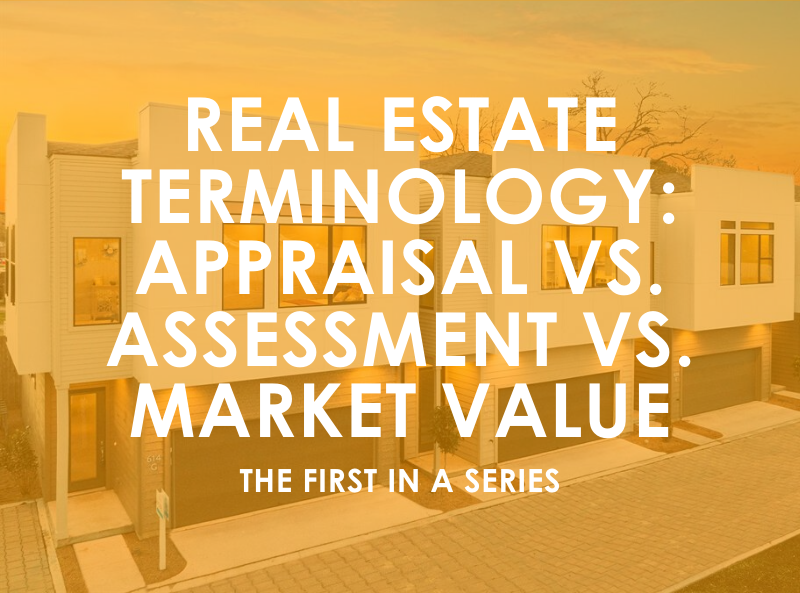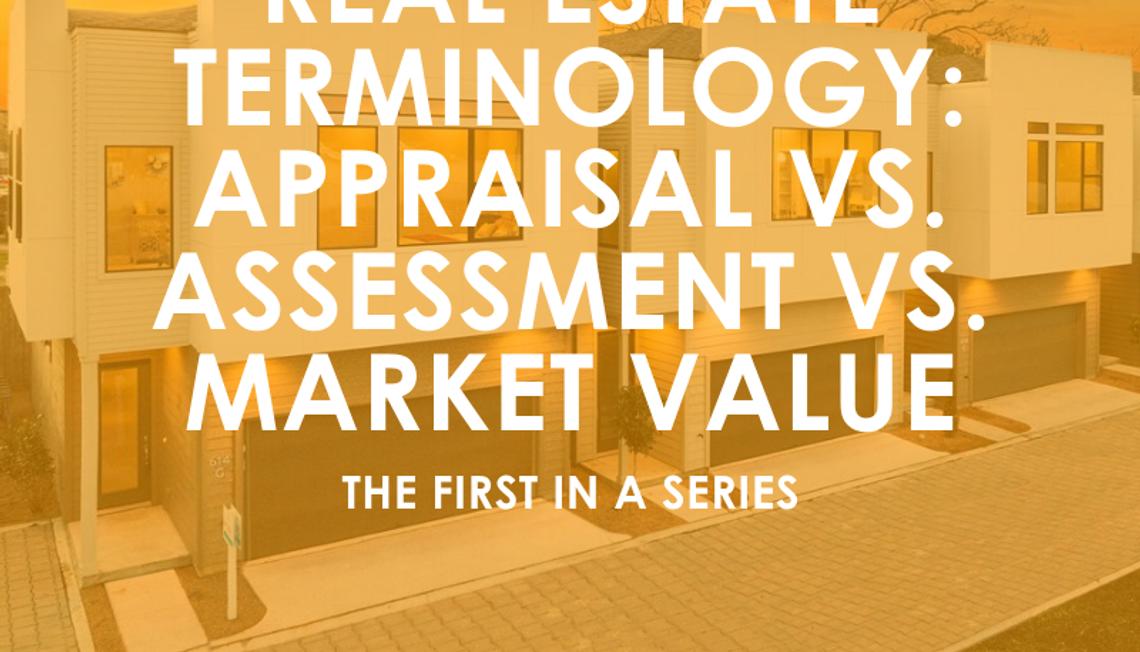
In the vocabulary of real estate, there are three terms that indicate a home’s valuation: the Appraised Value, the Assessed Value, and the Market Value. Rarely are these three values the same amount, so it is easy to confuse them when considering buying a home, obtaining a mortgage and contemplating ongoing costs of ownership. We’ll tackle them one at a time and then show you how they relate to each other.
Appraised Value
An appraisal is a valuation report completed by a licensed professional appraiser to determine property value at a given point usually for the purpose of obtaining a mortgage. It is an underwriting tool used by banks and other lenders to determine if the property is appropriate collateral for the loan they would be extending to a buyer for an original mortgage, or homeowner for the purpose of refinancing or obtaining a line of credit.
The appraiser uses recently sold comparable properties in the evaluation, accounting for differences in specific amenities such as square footage, the age of the roof, exterior and interior materials, the type and age of heating and cooling equipment, and a variety other factors to set a basis for the appraisal. The appraiser combines these numbers with other valuation methods such as the cost to rebuild the property (similar to the cost basis for homeowner insurance), or in the case of investment properties, the potential for income from rents or leases.
These numbers are not fixed. That is, there is no single list of values from which the appraiser draws. The appraisal relies on the appraiser’s own experience, understanding and knowledge of the area and property type. For the buyer, the appraisal that the mortgage lender uses is important because it determines how much money the lender is willing to extend to the borrower for the property. For an existing homeowner, an appraisal gives an indication of what a home will sell for, or the amount of a line or credit or second mortgage a bank will extend. During a home sale or refinance, the appraiser typically is the choice of the lender but paid for by the borrower.
Assessed Value
An assessed value most often is performed by the taxing agency of a municipality, like the Harris County Appraisal District, for the purpose of determining the tax basis of the property. The “assessment” is a percentage of the assessed value that the homeowner pays to the municipality as tax for capital improvements to roads, water and fire services, schools, and other essential services. In the Houston area, there are several taxing authorities that use the assessed value to determine their assessment, including HISD (or other local school districts), Houston Community College, Harris County Flood Control, just to name a few.
Market Value
In real estate, market value is not the same as assessed or appraised value. For example, the price of popcorn at a movie theater might be $5.00 per bag, while that same amount of popcorn at a convenience store might be $2.00 and a similar bag at the grocery store would be just $.50. We are willing to pay each of these prices based on the location and convenience to ourselves at that place and time. In the same way, the market value of a home is the price for which a specific property will sell under a specific set of circumstances in its current condition at a specific time—typically 1 to 3 months.
There is no actual way to determine exact market value, given that if any of the circumstances change, the market value changes. The seller’s circumstances may change, the property circumstances may change (tornado, hurricane, imminent domain), the buyer circumstances may change (new business relocates to area), the community circumstances may change (school loses funding, commercial or industrial building built nearby) or any of a myriad of factors. So true market value is the price a house will sell for in the 30 to 90 day period. It is not what it will sell for in one week—that would be a price below true value—nor the price of the house if it hasn’t sold for 90 days—the price is higher than the market value.
How the Assessment, Appraisal and Market Values Relate
While each of these may be similar in amount to each other at a specific point, a property’s assessed may trail behind the appraisal and market values if the Appraisal District has not upgraded the assessment in some time. Additionally, the appraisal must relate to comparables that the appraiser can prove to the lender, but cannot account for buyer-perceived value in a specific neighborhood, street or development. For example, if all of a buyer’s friends or family live in a two-block radius and a home becomes available in that neighborhood, the perceived value to that buyer may be higher than to another buyer. A motivated buyer may be willing to pay a higher price for a home than its appraised value, thereby adjusting the true market value. That’s where agents come into play. To help you determine how those perceptions affect your market value.
If you’re thinking of selling and would like an agent to provide an opinion of value, give us a call! We’re happy to help. Fill out the form below to get matched with an agent and we will be in contact soon.
Oops! We could not locate your form.




